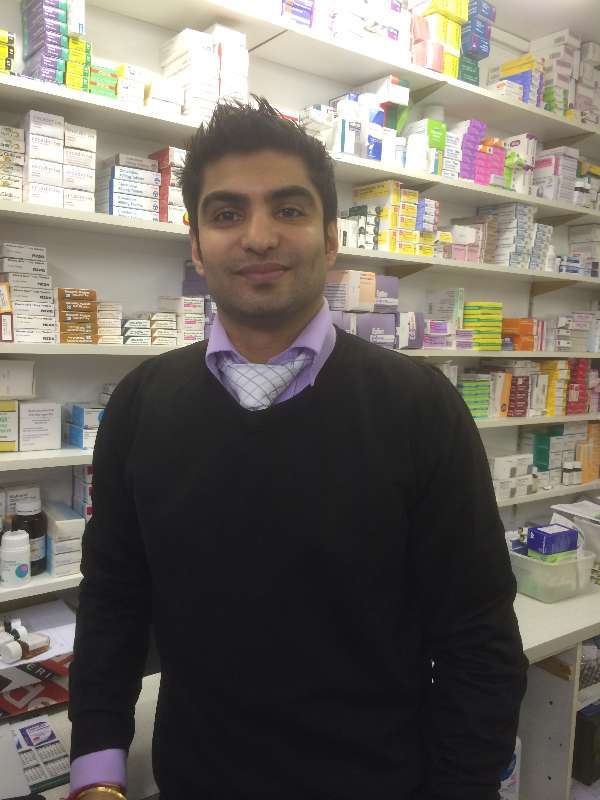
Aneet Kapoor, 33, who is chair of Manchester Local Pharmaceutical Committee and has two pharmacies in Chorlton and one in Rochdale gives a ‘behind the scenes’ view of his work.
I get to work early and the first thing I’ll do is check the prescriptions for the delivery van for patients.
After that no one day is the same – which I love about the job.
We have people coming in for anything and everything – and if they need a consultation we take them into a private room.
We can offer a medicines review service- which is particularly useful for conditions like asthma and Chronic Obstructive Pulmonary Disease (COPD) – both of which are the biggest sources of cost for the NHS in terms of emergency care. In Manchester we worked with the city’s Clinical Commissioning Groups to introduce a pilot scheme to show patients how to use their inhalers properly, because we found that a large number of people were getting problems because they didn’t know the right technique.
We can also look at medicine optimisation – which means making sure that the patient is using the right combination of drugs. We don’t change any clinical advice – we just make sure everything is being used in the right way and can contact the GP with updates or questions. This again also helps the NHS because it can reduce wasted prescriptions.
And, for patients who are starting a new drug or treatment, there is a service which ensures that people know how to take their medication properly – after research showed that around 70% of patients on new medications didn’t know how to take them.
In general, pharmacists offer a different way for patients to look after themselves and any long term conditions because appointments aren’t necessary.
In some ways I think we can be less daunting than a visit to a GP for some people – and I think this is why we have a lot of long-term relationships with patients. Our aim is to help the patient and complement, or work alongside, our GP colleagues to provide a linked up system of care.
Between dealing with any range of health questions from the morning after pill to the management of long term conditions and palliative care drugs we also have to check all prescriptions leaving the shop.
For me, the variety and the patients are the two main themes of the work. You just never know what each day will hold.
One night I was pulling down the shop shutter when a mother and daughter came up to me asking for help. The mother spoke limited English and was in the middle of a bad asthma attack. The daughter was able to translate and I knew she needed an inhaler quickly.
I couldn’t administer the inhaler, but I could give it to the mother as an emergency. In this case after ten minutes her breathing got much better and before she left I was able to get her details and set up a prescription for her regular medication.
This story sums it all up for me and shows the effect of the work we can do. I’ll often see our patients when I’m out and about – I never break patient confidentiality but they know I’m thinking about them.”